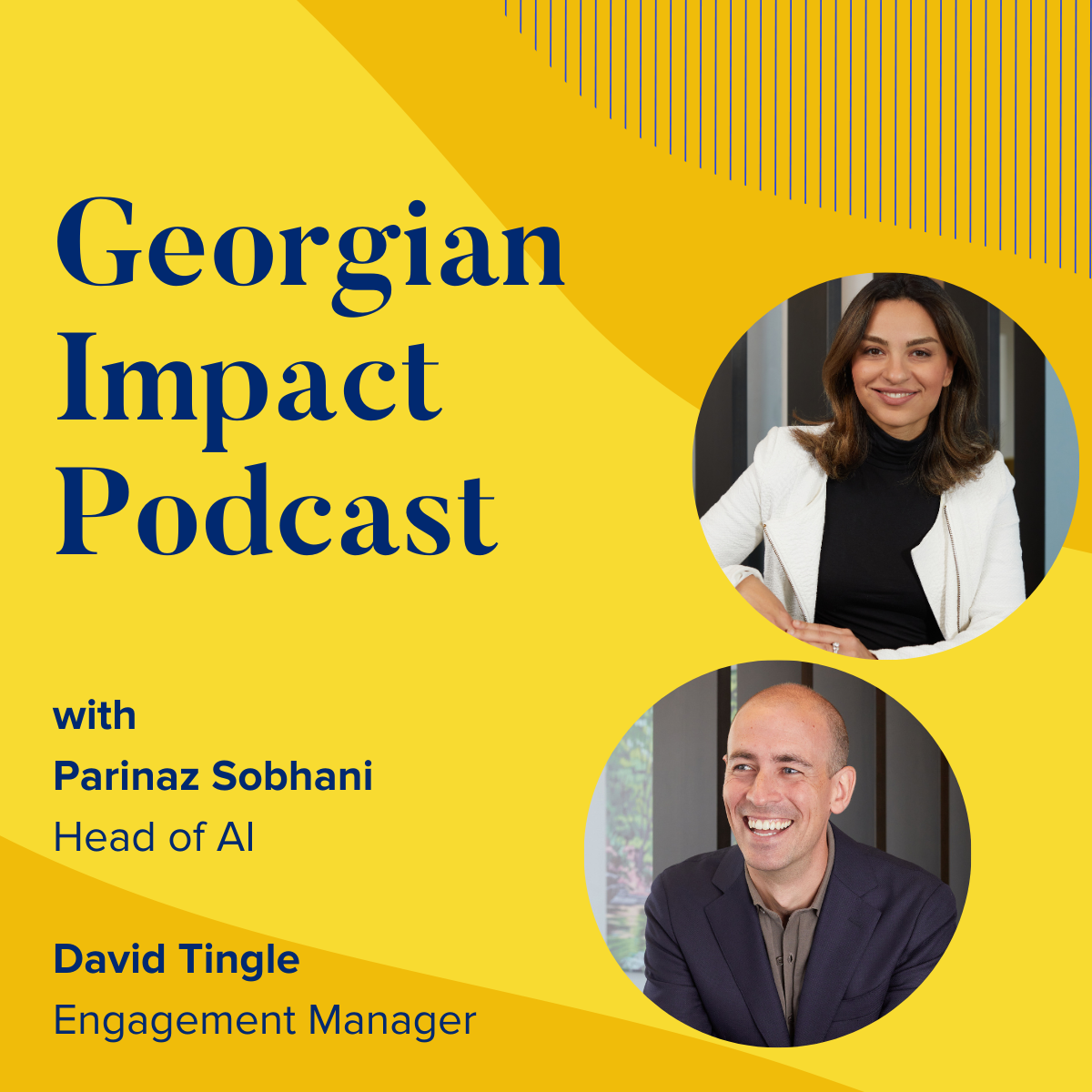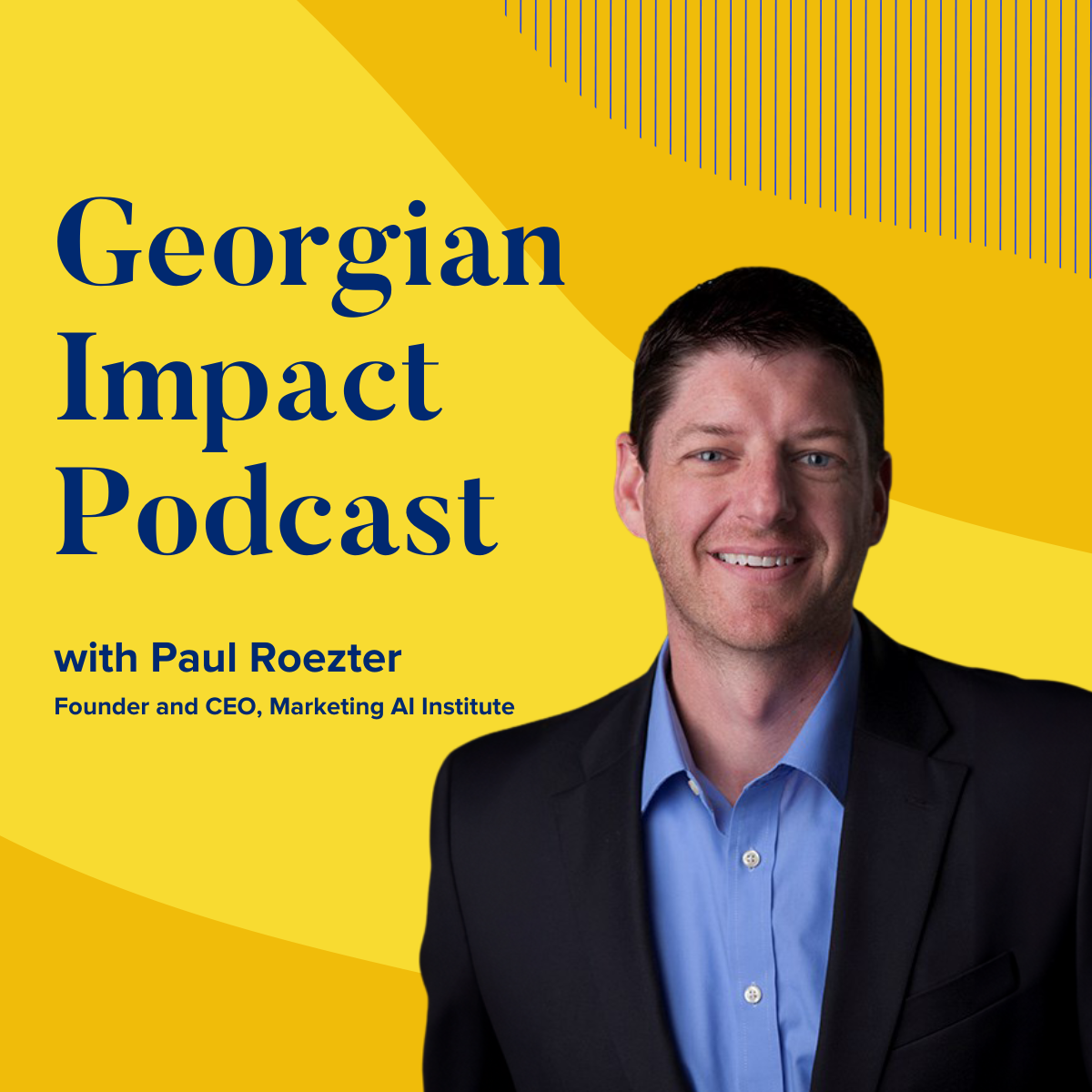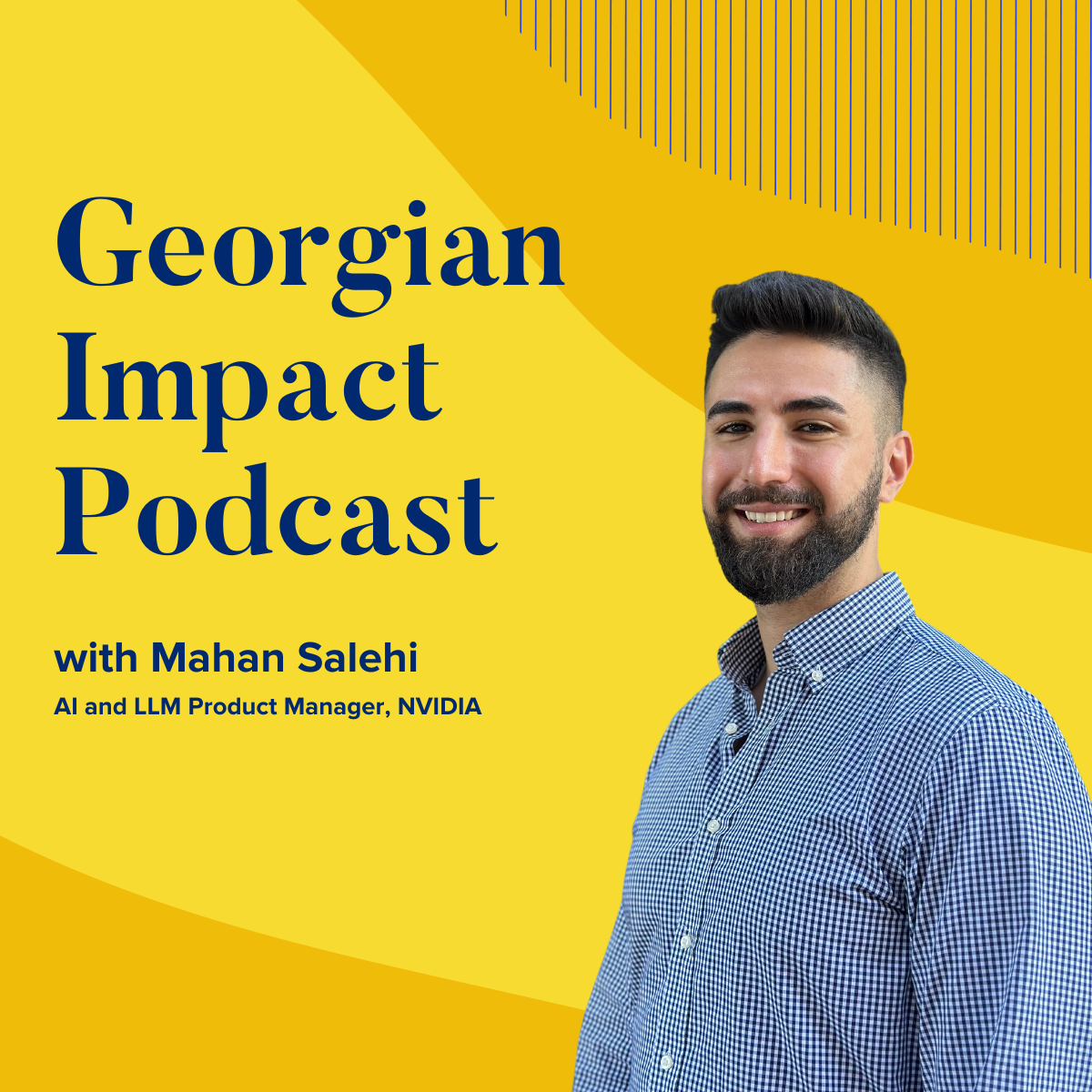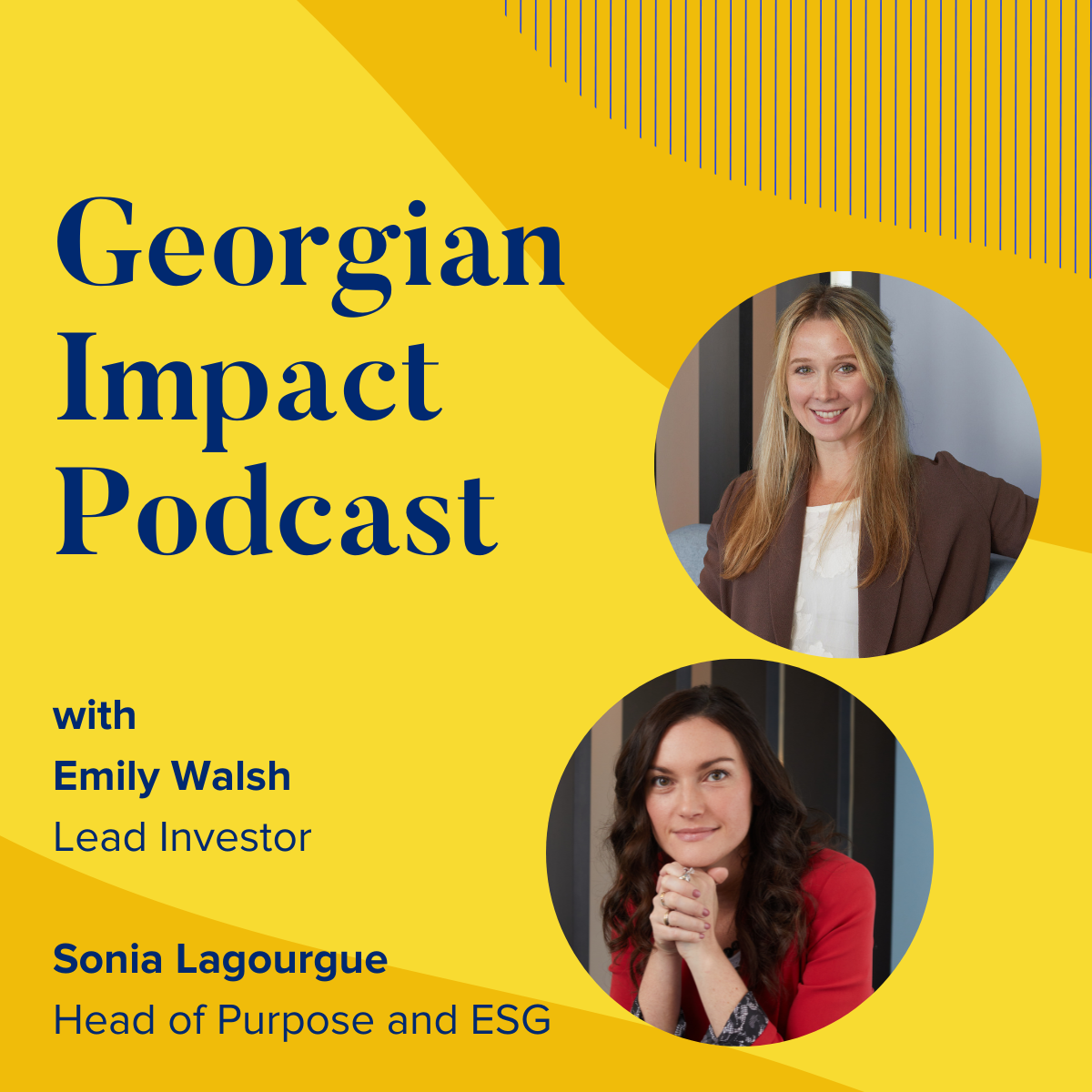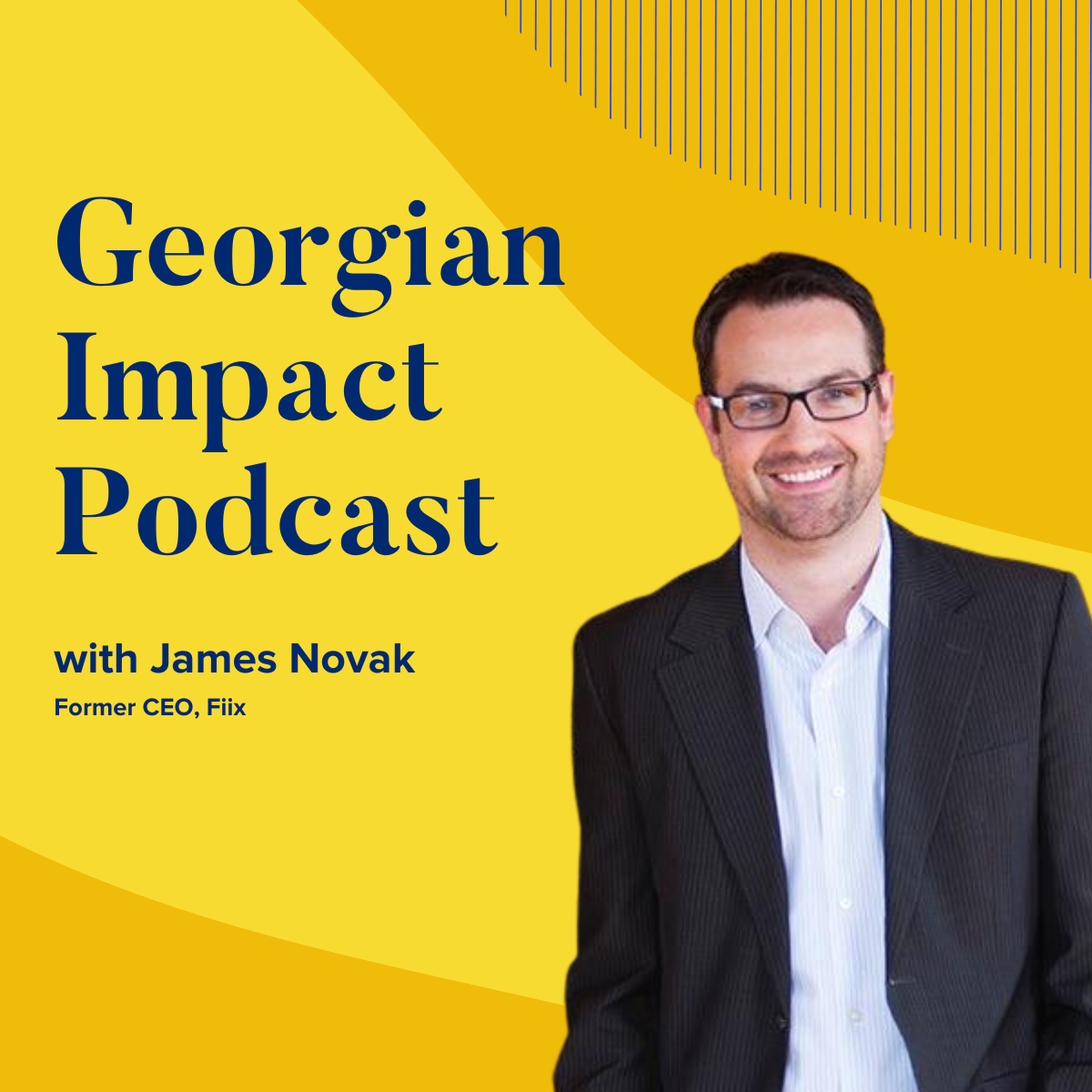Sometimes it’s hard to know where to start when it comes to generative AI. It’s not too hyperbolic to say that many different aspects of a business have the potential to be affected by this new technology. Today, we're going to talk about something that's behind the scenes for most people, although hopefully not this audience. It's coding.
On this episode of the Georgian Impact Podcast, we dive into the world of generative AI and its impact on coding, testing, and product design with guest Rodrigo Ceballos. Rodrigo is a machine learning engineer at Georgian and provides firsthand experience and expertise, shedding light on the transformative power of AI in the tech industry. Exploring the exciting possibilities brought about by the fusion of human creativity and AI technology.
You’ll Hear About:
- The progression of software engineering from low-level to high-level languages, culminating in the use of natural language for coding.
- The daily integration of generative AI, such as ChatGPT, in automating tasks and writing code.
- The role of large language models (LLMs) as an intermediate layer and a translation layer between different pieces of software.
- The impact of generative AI in automating functions, unit testing, and API interaction in programming.
- Using generative AI to brainstorm and guide game design, showing the versatility of AI in enhancing human creativity.
- The potential upside and downside of leveraging generative AI in streamlining processes and increasing efficiency.


